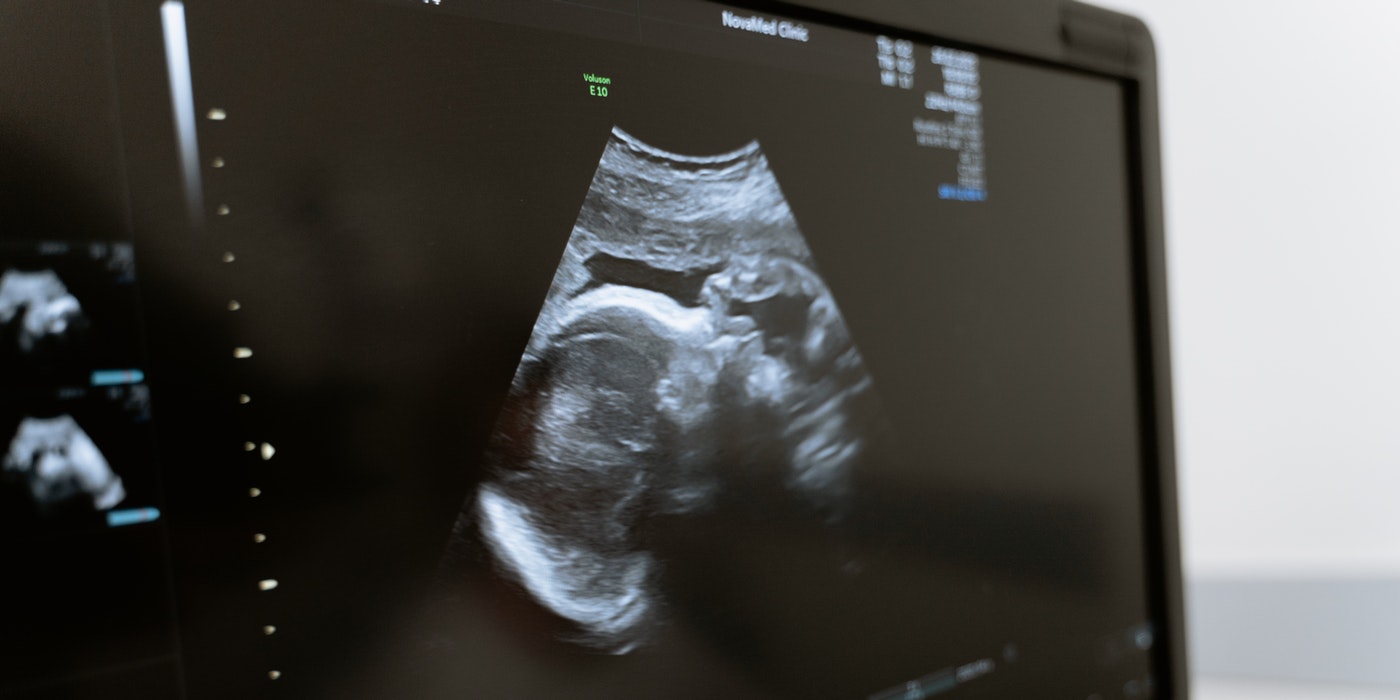What Is Thyroiditis?
The thyroid gland is an endocrine gland located in the lower front of the neck, in the shape of a butterfly. The thyroid’s duty is to produce thyroid hormones, which are then secreted into the bloodstream and delivered to all of the body’s tissues. Thyroid hormone aids in the efficient use of energy, the maintenance of body temperature, and the proper functioning of the brain, heart, muscles, and other organs. Thyroiditis is the swelling or inflammation of the thyroid gland, which can result in excessive or insufficient thyroid hormone production. Thyroid illness affects around 20 million Americans. Thyroiditis, like the others, can be a dangerous infection. The treatment you receive will be determined by the type you have and the symptoms it produces.
Stages of Thyroiditis
Thyroiditis is divided into three stages:
Thyrotoxic Phase
Thyrotoxicosis is a condition in which the thyroid is inflamed and produces an excessive amount of hormones.
Hypothyroidism Phase
The thyroid will not have enough thyroid hormones to release after a few weeks or months of excessive thyroid hormone release. This causes hypothyroidism or a shortage of thyroid hormones.
Euthyroidism Phase
Thyroid hormone levels are normal throughout the third euthyroid phase. This phase may occur after the thyrotoxic phase and before the hypothyroid phase, or it may occur after the thyroid gland has healed from the inflammation, and is able to maintain a normal hormone level.
Types of Thyroiditis
Hashimoto’s Thyroiditis
This is the most prevalent type of thyroiditis, and it affects almost five times as many women as it does men. Hypothyroidism is a common side effect of Hashimoto’s thyroiditis, which necessitates thyroid hormone replacement therapy.
Silent Thyroiditis
 Anti-thyroid antibodies produce another autoimmune condition known as silent thyroiditis which is more frequent in women and is the second most common cause of thyroiditis after Hashimoto’s.
Anti-thyroid antibodies produce another autoimmune condition known as silent thyroiditis which is more frequent in women and is the second most common cause of thyroiditis after Hashimoto’s.
Painless and Post-partum Thyroiditis
These illnesses are similar, with thyrotoxicosis followed by hypothyroidism being the common clinical course. The only true distinction is that postpartum thyroiditis develops after a baby is born, whereas painless thyroiditis develops in men and women who have not recently given birth. Not all patients show signs of going through both stages; roughly 1/3 of patients will show signs of both phases, whereas the remaining 1/3 will only have a thyrotoxic or hypothyroid phase. Anxiety, sleeplessness, palpitations, exhaustion, weight loss, and irritability are all signs of the thyrotoxic phase, which lasts 1-3 months.
Radiation-Induced Thyroiditis
External radiation used as a medical treatment for certain tumors or radioactive iodine used to treat hyperthyroidism can cause radiation-induced thyroiditis.
Subacute Thyroiditis
Subacute thyroiditis is often known as de Quervain’s thyroiditis. The clinical cause of subacute thyroiditis is similar to that of painless and post-partum thyroiditis, however, it is frequently accompanied by thyroidal pain. In patients with subacute thyroiditis, thyroidal pain usually occurs around the same time as the thyrotoxic phase (1-3 months). Thyrotoxicosis is not present in all patients with thyroid discomfort. As with mild and post-partum thyroiditis, most patients, about 95% of them, see a remission of all thyroidal abnormalities after 12-18 months. Subacute thyroiditis recurrence is uncommon.
Acute or Infectious Thyroiditis
A bacterial infection is the most common cause of acute or infectious thyroiditis. It’s uncommon, and it’s linked to a compromised immune system or, in children, a thyroid development problem. Signs may include throat soreness, general discomfort, thyroid gland swelling, and, in certain cases, symptoms of an overactive thyroid gland or symptoms of an underactive thyroid gland.
What Causes Thyroiditis?
Thyroiditis is a condition in which the thyroid is attacked, resulting in inflammation and damage to the thyroid cells. Thyroiditis is caused by antibodies that assault the thyroid gland. As a result, thyroiditis, like juvenile (type 1) diabetes and rheumatoid arthritis, is frequently an autoimmune disease. Thyroiditis can also be caused by an infection such as a virus or bacteria, which causes the gland to swell. Finally, medications like interferon and amiodarone can cause thyroiditis by damaging thyroid cells.
Symptoms of Thyroiditis
The symptoms of thyroiditis vary depending on the type and stage of the disease.
Hyperthyroid Phase
Usually only lasts a few days (1-3 months). If cells are destroyed quickly and excess thyroid hormone is released, hyperthyroidism symptoms may appear, such as:
- being concerned
- getting irritated
- sleeping problems
- a rapid heart rate
- fatigue
- unintentional weight loss
- heat intolerance
- increased sweating
- nervousness and anxiety
- appetite increase
- tremors
The Hypothyroid Phase
This can linger for a long time and even become permanent. If your cells are destroyed and your thyroid hormone levels drop, you may have hypothyroidism symptoms such as:
- fatigue
- unexpected weight increase
- constipation
- depression
- parched skin
- physical activity is difficult to execute
How Is Thyroiditis Diagnosed?
Thyroid Function Tests
This test determines the levels of hormones in the blood (thyroid-stimulating hormone or TSH, T3, and T4). The pituitary gland produces TSH, which encourages the thyroid gland to create T4 and T3. Thyroid hormone is produced by the thyroid gland, which produces the hormones T4 and T3. Thyroid hormones are the T3 and T4 hormones.
Thyroid Anti-Body Test
Antithyroid (microsomal) antibodies (TPO) and thyroid receptor stimulating antibodies (TRSA) are measured in thyroid antibody tests (TRAb).
Erythrocyte Sedimentation Rate
By monitoring how quickly red blood cells fall, the erythrocyte sedimentation rate (ESR or sed rate) shows inflammation. In subacute thyroiditis, the ESR is elevated.
Radioactive Iodine Uptake (RAIU)
The amount of radioactive iodine absorbed by the thyroid gland is measured by radioactive iodine uptake (RAIU). In the thyrotoxic phase of thyroiditis, the quantity is always low.
Ultrasound
 Ultrasound, often known as thyroid ultrasonography, is frequently used to assess the anatomy of the thyroid gland. It can detect a thyroid nodule (growth), a change in blood flow (Doppler mode), and the gland’s echotexture (intensity/density).
Ultrasound, often known as thyroid ultrasonography, is frequently used to assess the anatomy of the thyroid gland. It can detect a thyroid nodule (growth), a change in blood flow (Doppler mode), and the gland’s echotexture (intensity/density).
Treatment Options for Thyroiditis
Treatment is determined by the type of thyroiditis and how it manifests clinically.
Thyrotoxicosis
This is a condition in which the thyroid gland produces too much hormone. Beta-blockers may be beneficial in reducing palpitations (fast heart rate) and tremors. Because the thyrotoxic phase is very transient, the medicine is tapered off when symptoms improve. Since the thyroid is not overactive in the thyrotoxic phase of thyroiditis, antithyroid drugs are not required.
Thyroidal Pain
Mild anti-inflammatory drugs like aspirin or ibuprofen can usually relieve the pain associated with subacute thyroiditis. Pain might be severe at times, necessitating prednisone steroid treatment.
Hypothyroidism
Thyroid hormone replacement is used to treat hypothyroidism caused by Hashimoto’s thyroiditis. Thyroid hormone therapy is also recommended for people who are symptomatic with the hypothyroid phase of subacute, painless, or postpartum thyroiditis. If the hypothyroidism in these conditions is minor, and the patient has few, if any symptoms, treatment may not be required. Thyroid hormone therapy should be started in individuals with subacute, painless, and postpartum thyroiditis and continued for 6-12 months before being decreased to see if it is needed permanently.
How to Prevent Thyroiditis
- Avoid processed foods because several chemicals might affect thyroid hormone production.
- Avoid soy consumption because it changes hormone synthesis.
- Quit smoking because toxins generated by smoking can cause the thyroid gland to become oversensitive, resulting in thyroid problems.
- Reduce your stress levels because stress is a crucial factor in a variety of health problems, including thyroid disease.
Now that you Know…
Thyroiditis and its symptoms may only last a short time. You will be able to live a regular life after treatment in this situation. Work with your doctor to manage symptoms if the disease returns or becomes permanent. If you do not seek treatment, the damage to your thyroid may worsen, perhaps leading to more serious health problems. Also, if you are a woman, you are most likely to experience reproduction issues or birth a child with birth defects.




